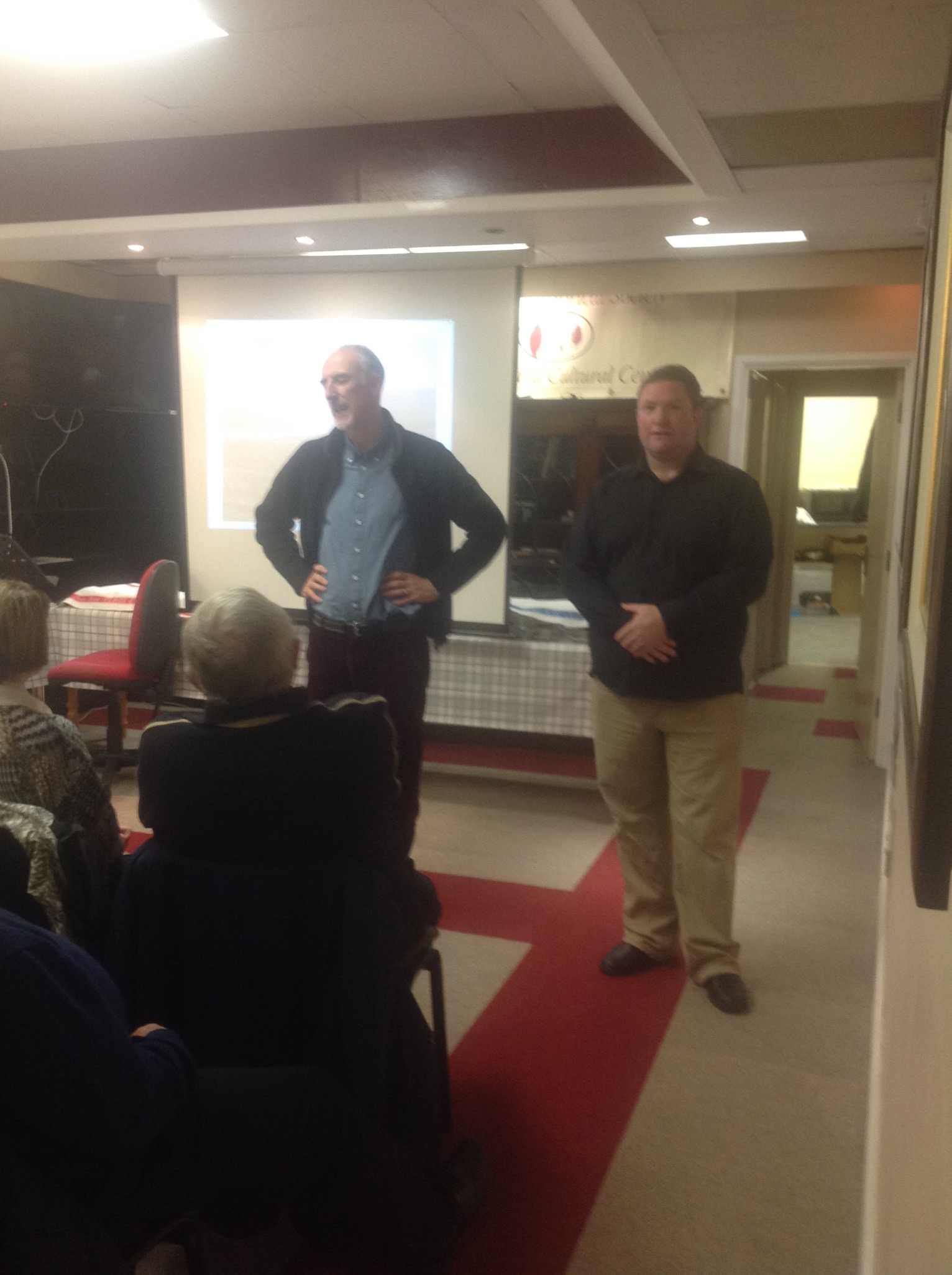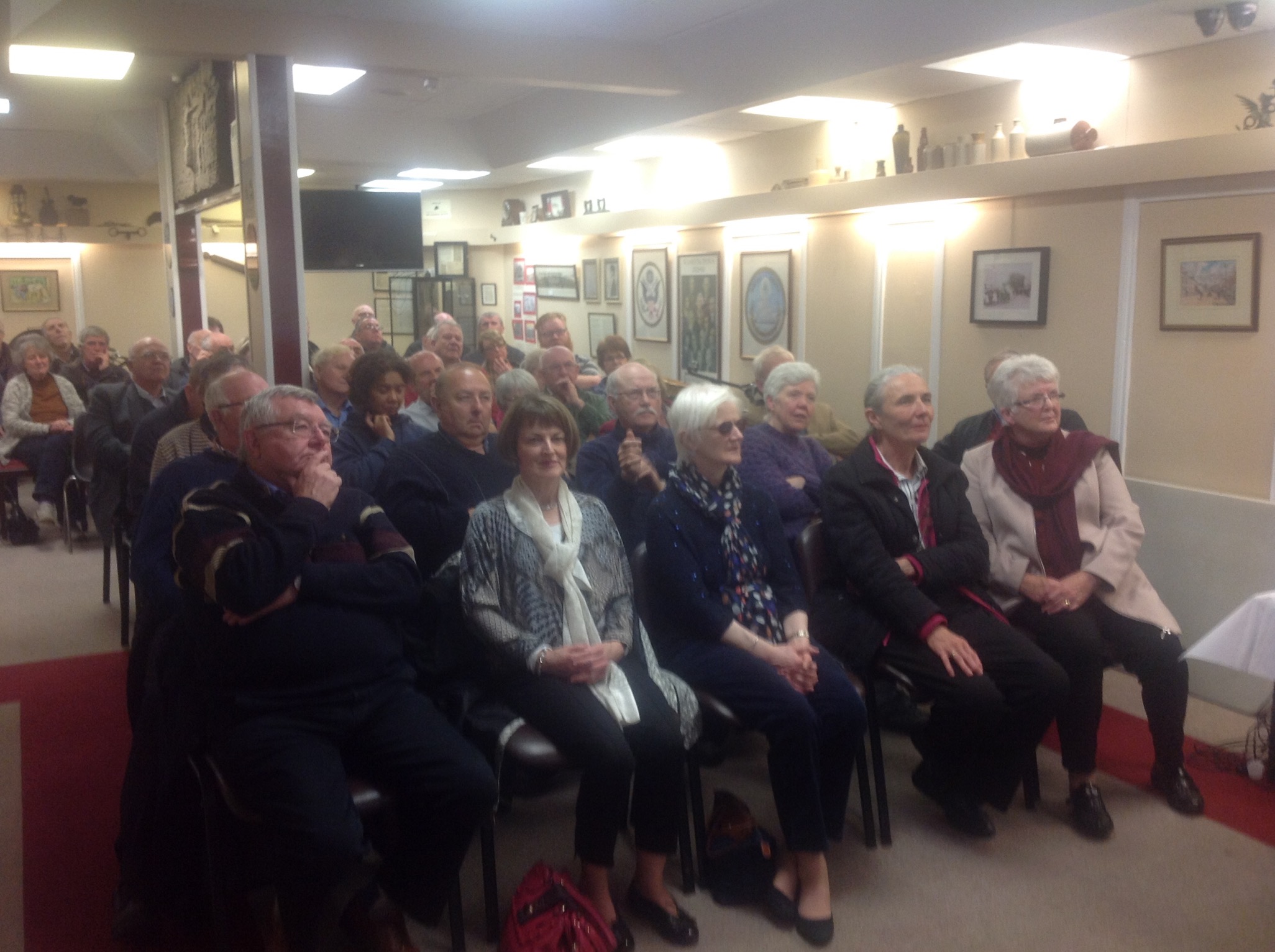
It was standing room only at Maghera Heritage and Cultural Centre on Thursday night, 27th October, when locally-born Professor Dan Bradley returned to his roots to deliver a fascinating lecture on ancient Irish DNA. Professor Bradley has led a team, at Trinity College Dublin, which sequenced the first ancient genomes from Ireland shedding new light on the genesis of Celtic populations.
The science of genetics is really the science of inheritance and provides a wealth of information about ourselves and our ancestry. Using a technique called whole genome analysis, the team examined the remains of a stone-age woman farmer, one of the first farmers in Ireland, who was buried over 5,000 years ago in Ballynahatty near Belfast and those of three men buried in Rathlin Island during the bronze age – between 3,000 and 4,000 years ago. The results give a fascinating glimpse into where we came from who we are and what characteristics we share as a people
Among many fascinating observations Prof. Bradley illustrated how early Irish farmers were similar to southern Europeans. It also appears that with the advent of the Bronze Age genetic patterns changed quite dramatically as newcomers from the Black Sea area of eastern Europe settled in Ireland. Prof. Bradley also observed that Ireland has the world’s highest frequencies of genetic variations pertaining to lactase persistence – the ability to drink milk into adulthood – and certain genetic diseases, including one of excessive iron retention called haemochromatosis. This appears to have resulted from the Bronze Age migration which eventually arrived on Irish shores
Prof. Bradley was closely questioned in a follow up Q and A session which continued over tea and late into the evening. Thanks to Dan and his team, the question of who we are may not be as simple as many of us thought. Many thanks also to those involved in arranging the evening. In particular, to Prof. Bradley who gave so generously of his time and also Annette Rafferty who yet again provided the welcome refreshments.
